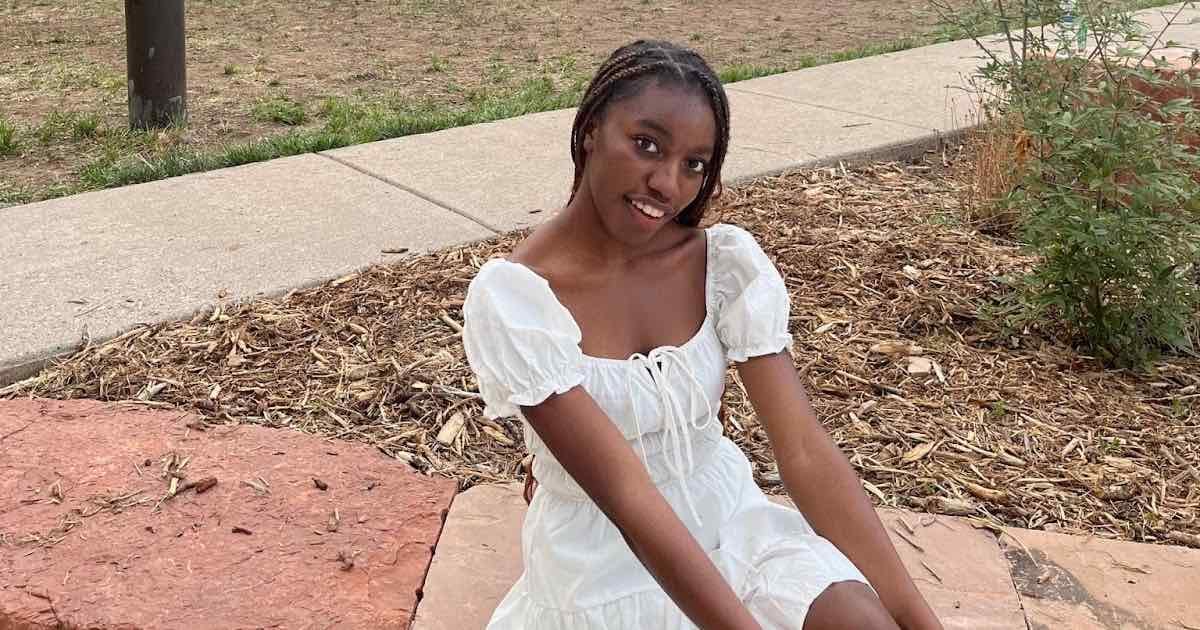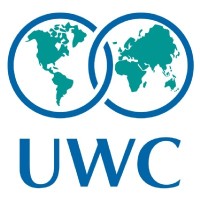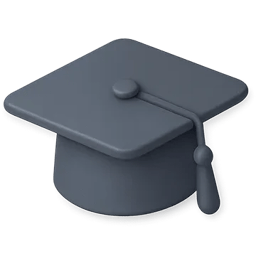تعرّف عليّ
مرحبًا بالجميع! اسمي كاينو. أنا من ناميبيا، وهي دولة في أفريقيا جنوب الصحراء الكبرى. حاليًا، أنا في سنتي الأولى في كلية أرماند هامر يونايتد وورلد للغرب الأمريكي، والمعروفة أيضًا باسم UWC-USA.

معلومات أساسية عن كليات العالم المتحد
تعد كليات العالم المتحد (UWC) شبكة دولية من المدارس والبرامج التعليمية تشترك في هدف 'جعل التعليم قوة لتوحيد الناس والأمم والثقافات من أجل السلام ومستقبل مستدام'. تأسست في عام 1962 على يد المربي الألماني كورت هان، وتعمل UWC على تعزيز التفاهم بين الثقافات. حاليًا، هناك 18 حرمًا جامعيًا لـ UWC موزعة على أربع قارات حول العالم. أنا أدرس في UWC-USA في مونتيزوما، نيو مكسيكو، والتي تأسست كخامس حرم جامعي لـ UWC في عام 1982. تتبع جميع كليات UWC نفس المنهج الدراسي - برنامج دبلوم البكالوريا الدولية (IBDP) - وهو برنامج تعليمي معترف به دوليًا للطلاب من سن 16 إلى 19 عامًا. بالإضافة إلى ذلك، تقدم بعض مدارس وكليات UWC للطلاب من سن 16 إلى 19 عامًا البرنامج المهني للبكالوريا الدولية (IBCP)، والذي يسمح بالتخصص في مجال معين.

نبذة عن التقديم إلى كليات العالم المتحدة (UWC) ولجنتي الوطنية
هناك بشكل أساسي طريقتان للتقديم إلى كليات العالم المتحدة: إما من خلال لجنة وطنية تابعة لـ UWC أو من خلال برنامج الاختيار العالمي لـ UWC (GSP).
إذا كنت بحاجة إلى منحة دراسية (مساعدة مالية) للالتحاق بـ UWC، فإن التقديم من خلال لجنة وطنية، كما فعلت أنا، هو الطريق المناسب لك. اللجان الوطنية لـ UWC هي مجموعات من الأشخاص - معظمهم من المتطوعين - المسؤولين عن إيجاد واختيار الطلاب ذوي الإمكانات في أكثر من 150 دولة ومنطقة. معظم الطلاب يتقدمون إلى UWC عبر لجنتهم الوطنية. بهذه الطريقة، يتم تقييمهم ضمن سياقهم الوطني من قبل أشخاص من بلدهم، وإذا تم عرض مكان عليهم، فسيحصلون عادةً على دعم مالي بناءً على احتياجاتهم. العيب الوحيد في التقديم من خلال اللجنة الوطنية هو أنك لست مضمونًا الدخول إلى مدرسة UWC التي تختارها، على الرغم من أن بعض اللجان الوطنية تسمح لك بترتيب الحرم الجامعي حسب تفضيلك. في النهاية، يُتوقع منك ببساطة الذهاب إلى أي مكان ترشحك إليه اللجنة، إذا تم قبولك.
لقد تقدمت إلى UWC عبر اللجنة الوطنية الناميبية. لتكون مؤهلاً، يجب أن تكون: عمرك بين 16-18 عامًا، مواطنًا ناميبيًا، خريج الصف العاشر، نشطًا في المشاريع المجتمعية، وتجسد قيم UWC. تضمنت عملية التقديم ملء نموذج مع مقالات، وتقديم خطابات توصية، وتقديم الوثائق اللازمة. المتقدمون الناجحون ينتقلون إلى أيام التقييم التي تتضمن مقابلات ومهام. إذا نجحت، يتم ترشيحك لحرم جامعي تابع لـ UWC وتنتظر عرضًا رسميًا. تعتمد عملية التقديم بشكل كبير على لجنتك الوطنية. بعض اللجان تطلب من المتقدمين إجراء اختبارات أو حتى مناظرات.
أما بالنسبة لبرنامج GSP، من ناحية أخرى، يمكنك التقديم من خلال هذا المسار إذا كنت لا تحتاج إلى منحة دراسية للالتحاق بـ UWC. يسمح لك التقديم من خلال هذا المسار بالتقدم للدخول إلى مدرسة واحدة أو حتى خمس مدارس، على عكس مسار اللجنة الوطنية. فقط 15 مدرسة من مدارس UWC تقدم القبول من خلال GSP، والقبول غير مضمون من خلال هذا المسار أيضًا.
مدرستي الثانوية قبل الالتحاق بكليات العالم المتحدة
عندما كنت في ناميبيا، درست في مدرسة دولية وكنت على وشك أداء امتحانات الشهادة الدولية العامة للتعليم الثانوي (IGCSE) عندما تقدمت بطلب للالتحاق بكليات العالم المتحدة (UWC). كانت اللجنة الوطنية في بلدي تشترط على المتقدمين إكمال الصف العاشر قبل التقديم. كنت استثناءً لأن منهج IGCSE يعتبر معادلاً للصف الحادي عشر في المدارس التي تتبع المنهج الوطني.
لماذا اخترت التقديم
يتقدم الناس للالتحاق بكليات العالم المتحدة (UWC) لأسباب مختلفة. بالنسبة للبعض، إنها فرصة للابتعاد عن المنزل وتجربة بلد آخر للمرة الأولى. يجذب البعض الآخر الفرص الأكاديمية التي توفرها الدراسة في UWC، مثل منحة ديفيس. شخصياً، تقدمت إلى UWC بشكل أساسي من أجل التجربة، حيث كنت سأتبع منهج البكالوريا الدولية (IB) في مدرستي الدولية في ناميبيا على أي حال. لقد جذبتني بشدة فرصة الانتماء إلى مجتمع متنوع واستكشاف ثقافات وأماكن أخرى.
عملية التقديم
تختلف عملية التقديم وفترتها لكل لجنة وطنية في كليات العالم المتحدة (UWC). بالنسبة لكلية العالم المتحدة في ناميبيا، يتم قبول الطلبات لمدة تزيد قليلاً عن شهر تقريبًا. كان نموذج الطلب عبر الإنترنت، وطُلب منا تقديم معلومات شخصية مع نوع من إثبات الهوية (على سبيل المثال: شهادة الميلاد).
كان عليّ أيضًا أن أطلب من معلميّ خطابات توصية (واحدة أكاديمية وأخرى غير أكاديمية) بمجرد أن قررت التقديم. كانت الأولى من معلم الأحياء، والثانية من منسق نموذج الأمم المتحدة. من المهم طلب هذه الخطابات مبكرًا، حيث لا يوجد موعد لاحق لإرسال خطابات التوصية. يجب أن يكون طلبك مكتملاً تمامًا قبل تاريخ التقديم. شخصيًا، استغرقت مني عملية إعداد وتقديم طلبي شهرًا كاملاً، حيث كنت أخوض امتحانات تجريبية آنذاك.
كان القسم الأخير من الطلب عبر الإنترنت هو جزء المقال. كان جزء منه يتعلق بدوافعنا للتقديم إلى UWC وكيف نجسد قيم UWC. كانت الأسئلة التالية حول مشاركتنا في الأنشطة اللاصفية (الأنشطة الثقافية والرياضة والتطوع). ثم كانت هناك أسئلة الكتابة الإبداعية مثل "ما هو أكبر درس تعلمته في الحياة؟" و "ماذا ستغير إذا كنت مدير مدرستك لمدة أسبوع؟"
كنت محظوظة بما يكفي للقبول في المرحلة الثانية. كانت هذه المرحلة عبارة عن مقابلة مدتها 30 دقيقة مع أربعة أشخاص على دراية برسالة UWC. بعد أسبوعين، تم إخطاري من قبل اللجنة بأنني قد قُبلت. تم إرسال طلبي بعد ذلك إلى فريق القبول في UWC USA، الذي سيتخذ القرار النهائي. في هذه المرحلة، يتم ضمان مكانك بشكل أساسي، ولكن هناك بعض الحالات التي يتم فيها رفض الأشخاص من قبل الكلية بعد قبولهم من قبل اللجنة الوطنية.
الموارد والتصنيفات والمزيد
لتعزيز طلبي، شاهدت مقاطع فيديو على يوتيوب أنشأها طلاب حاليون في UWC USA، يقدمون نصائح حول الطلبات والمقابلات. ومع ذلك، يجب أن تكون هذه الفيديوهات بمثابة دليل، حيث أن معظم الأسئلة لا يمكن الإجابة عليها بشكل شامل إلا من قبلك - فاللجنة تريد التعرف على شخصيتك الحقيقية.
فيما يتعلق بالتصنيفات، خلال دورة تقديم طلبي، تلقت لجنتي الوطنية العروض التالية:
تمويل كامل لـ UWC USA
تمويل كامل لـ UWC ISAK Japan
تمويل جزئي لـ Li Po Chun UWC
تمويل جزئي لـ UWC Costa Rica
بدون تمويل لـ Waterford Kamhlaba UWC
لا تكشف جميع اللجان الوطنية عن عروضها، لذا ساعدتني هذه المعلومات في ترتيب تفضيلاتي. قبل مقابلتي، بحثت عن كل كلية متاحة لاكتساب نظرة ثاقبة. في النهاية، قمت بترتيبها بناءً على الأمور المالية وتفضيلي لحرم جامعي يقع في بلد يتحدث الإنجليزية بشكل أساسي. جذبتني برامج UWC USA، ولا أندم على ترتيبها في المرتبة الأولى. بالإضافة إلى ذلك، استكشفت مدونات الفيديو وتيك توك وصفحات إنستغرام لتصور كل حرم جامعي. كما أثرت المواد الدراسية المتاحة في كل كلية على قراري.

الشؤون المالية
إليك نظرة عامة على عروض المنح الدراسية المتاحة لطلاب UWC:
المنحة الدراسية الشاملة: تغطي كل شيء: الرسوم الدراسية، السكن والطعام، الكتب، رسوم تسجيل امتحانات IB، الرحلات الميدانية المنهجية، أسابيع المشاريع، تكاليف التأشيرة والسفر (رحلات الطيران من وإلى المدرسة ورحلة عودة واحدة للعطلة بين السنة الأولى والثانية)، مصروف الجيب، وأي نفقات إضافية معقولة قد يتكبدها الطالب.
المنح الدراسية الكاملة: عادة ما تغطي الرسوم الدراسية، السكن والطعام، الكتب، رسوم تسجيل امتحانات IB، الرحلات الميدانية المنهجية، أسابيع المشاريع.
التمويل الكامل: عادة ما يغطي الرسوم الدراسية، السكن والطعام، الكتب، رسوم تسجيل امتحانات IB، الرحلات الميدانية المنهجية.
المنح الدراسية الجزئية: عادة ما تغطي أجزاء من الرسوم الدراسية، السكن والطعام، الكتب، رسوم تسجيل امتحانات IB، الرحلات الميدانية المنهجية.
حصلت على "منحة دراسية تصل إلى التمويل الكامل" من UWC USA. وهي تعتمد بالكامل على الاحتياج المالي، مما يسمح للطلاب بدفع ما يستطيعون. تغطي منحتي الرسوم الدراسية ورسوم السكن، بينما يغطي والداي التأمين الصحي ورسوم التأمين. بالإضافة إلى ذلك، أحصل على منحة سنوية قدرها 500 دولار، اعتمادًا على الاحتياج المالي. تقدم بعض الكليات أيضًا مقاعد غير ممولة للجان الوطنية. تم التنازل عن رسوم التقديم من خلال لجنتي الوطنية، ولكن قد يختلف هذا حسب لجنتك المحددة.
البكالوريا الدولية
بالنسبة لي، كوني قادمة من منهج دراسي دولي، لم يكن برنامج دبلوم البكالوريا الدولية (IBDP) تغييرًا كبيرًا. ومع ذلك، ما يجعل البكالوريا الدولية تحديًا هو حجم العمل الذي يجب إنجازه خلال فترة عامين. على عكس مستويات A، حيث تدرس عادةً 3 إلى 4 مواد، تتطلب البكالوريا الدولية 6 مواد (2 إلى 3 في المستوى القياسي و3 إلى 4 في المستوى العالي)، بالإضافة إلى المكونات الأساسية للبكالوريا الدولية (المقال الموسع، نظرية المعرفة، والإبداع والنشاط والخدمة).
يختار طلاب IBDP دورة من كل من المجالات الستة التالية. وهذه هي اختياراتي!
دراسات في اللغة والأدب: الأدب الإنجليزي أ (المستوى العالي)، اللغة والثقافة (المستوى القياسي)
اكتساب اللغة: اللغة والثقافة هي مادة متعددة التخصصات للمجموعتين 1 و3. أخذ مادتين من المجموعة 1 يلغي متطلب دراسة مادة من المجموعة 2.
الأفراد والمجتمعات: النظم البيئية والمجتمعات (المستوى القياسي)
العلوم: الكيمياء، الأحياء (المستوى العالي)
الرياضيات: تحليل الرياضيات ومناهجها (المستوى القياسي)
الفنون: (بدلاً من دورة في الفنون، يمكن للطلاب اختيار دراسة علم آخر، أو مادة من الأفراد والمجتمعات، أو مادة اكتساب لغة)
إدارة الوقت بفعالية أمر بالغ الأهمية - ستحتاج إلى تحديد الأولويات بين الثلاثة S: الدراسة والنوم والحياة الاجتماعية.

تجربتي حتى الآن
كانت الأسابيع القليلة الأولى في الحرم الجامعي، بصراحة، رائعة! كان من الممتع جدًا التعرف على أشخاص جدد، على الرغم من أن تذكر الكثير من الأسماء الجديدة كان أمرًا مرهقًا. لم أواجه حقًا أي نوع من الصدمة الثقافية لأنني كنت قادمة من مدرسة دولية. الفرق الوحيد هو أنني اضطررت للعيش معهم هذه المرة. كانت "الصدمة" الرئيسية هي المستويات المتفاوتة من النظافة الشخصية والبيئية بين زملائي.
بالنسبة لـ CAS الخاص بي، أقوم بما يلي:
الطعام والمأوى: أساعد في تعبئة الملابس في متجر الأدوات المستعملة في المدينة، وتوزيع صناديق الطعام، والمساعدة في إعداد الطعام الساخن للإفطار.
شركاء في الصحة: يتم تمويل هذا الـ CAS من قبل منظمة غير حكومية ويتضمن بشكل أساسي أنشطة متعلقة بالصحة. في بداية العام الدراسي، قمنا بجمع الأموال للمساعدة في تمويل عيادة للأمومة في سيراليون. كما عقدنا عروضًا تقديمية حول الصحة العامة وصحة السود.
واجب المطبخ: أساعد في مطبخ المدرسة. بالنظر إلى قائمتي الآن، أنا بالتأكيد بحاجة إلى المزيد من الاعتمادات الإبداعية، لذلك من المحتمل أن أتخذ الرقص كـ CAS في العام المقبل.
في الوقت الحالي، لدي توازن متقلب بين الـ 3 S's. في بعض الأحيان أعطي الأولوية للنوم، وفي أوقات أخرى أركز على دراستي، وأذهب للأنشطة الاجتماعية عندما أنتهي.

نصائح للمتقدمين المستقبليين
نصيحتي الرئيسية هي أن تكون صادقًا 100% في طلبك. يجب على اللجنة الوطنية أن تقرر ما إذا كانت UWC مناسبة حقًا لك، حيث يصل الكثير من الناس إلى هنا ويدركون أن هذا ليس المسار الصحيح لهم في الواقع. إذا تم قبولك، فمن الأفضل أن تأتي بعقل منفتح وتخلق تجربتك الخاصة في UWC لنفسك، وليس بناءً على ما أخبرك به الآخرون.
حسنًا، هذا هو جوهر الأمور. إذا كنت طالبًا في السنة الأولى القادمة في UWC USA، فلا أطيق الانتظار لمقابلتك. بالنسبة للمتقدمين المستقبليين، حظًا سعيدًا في رحلة تقديم طلبك! ✨




